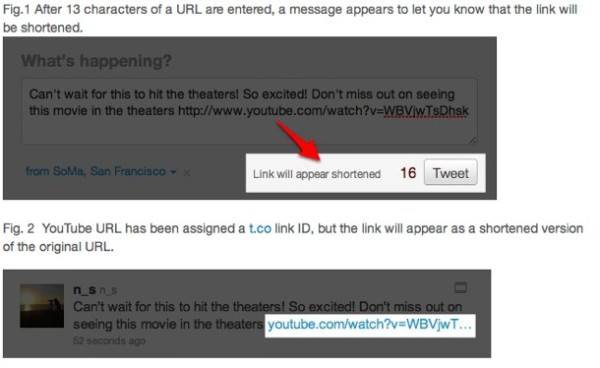Twitter has been developing a lot of new core products recently that used to be filled through third-party applications. Yesterday, the company introduced a new feature to Twitter.com – automatic link shortening.

If you wanted to shorten a link within Twitter.com before, you had to use a link shortening service like Bit.ly or TinyURL and paste the link into the “New Tweet” field. Twitter will now truncate URLs that are longer than 13 characters and give them a t.co ID (Twitter’s URL shortening handle) while keeping the original URL intact so you know where the link originated.
Twitter will not provide analytics for its URL shortening service. In a blog post announcing the new service, Twitter said that “you can continue to use your favorite third-party link shortening services” if you want analytics for short URLs.
Security was also on Twitter’s mind. All links shortened through Twitter.com will be checked against the company’s database of malicious URLS. Twitter will shorten URLs to 19 characters so that they will contain the primary stem of the link that is being shortened. One of the primary problems with short links on Twitter is that third-party links from services like Bit.ly could come from anywhere. Many publishers use custom or vanity URL shorteners to avoid the problem. Google also allows publishers to shorten URLs through Goo.gl.

There are also spammers to worry about. Last week it was reported by security company Symantec that spammers are creating new and sophisticated ways to use public URL shorteners to redirect their phishing targets to malicious websites.
This is another rollout of a core feature by Twitter that was filled primarily by a third-party service. Last week the company launched hosted photo sharing, going after the likes of TwitPic and YFrog along with better search functions. This week it is URL shortening. What core service will Twitter unveil next week?
This may be one of the first features that Twitter is implementing from its acquisition of TweetDeck. The Twitter desktop client has shortened URLs within the “New Tweet” field almost since its inception.
















